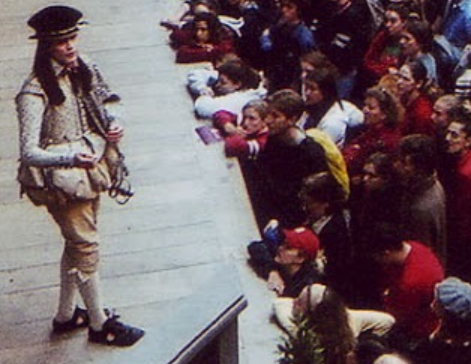When a play by Shakespeare is produced for the screen, some bad things happen. The kind of story space a screen gives is fundamentally different than the storyland a stage presents. The story medium changes the way you can tell the story. The stage’s storyland can be abstract, sparse, and representative (yes, those are cardboard swords, fine, no problem). The screen is filled with real objects, side to side, top to bottom. The screen never expects its audience to imagine a storm, it always gives them real thunder and buckets of rain.

Shakespeare, of course, wrote for the stage, and some of the things in his plays are famously difficult to present in a movie or television version. The screen, because it is limited to visual “realism” simply cannot offer the imaginative story space that the stage does.
I illustrate this truth with a consideration of the soliloquy. From time to time, Shakespeare gives one of his characters a speech that he gives alone on the stage. None of the other characters are there to hear. These are typically speeches in which the character is working his way through a problem: making plans, considering options, and anticipating difficulties. The Shakespearean scholar Harold Blum, I think it was, said that the soliloquy is the one time the audience knows the exact truth of a character’s thought. Because of course in every dialog with another character, the man may be trying to impress, persuade, or manipulate, with shades of truth or outright lies. But in a soliloquy, the audience gets exactly what he is thinking.
And in the best stage soliloquies, the actor gives his lines directly to the audience. He looks audience members in the eye and explains his problem, his plan, and what he expects to accomplish.
This almost never happens in a screen version. Way too often, the soliloquy becomes a voice-over as the camera focuses on the character doing not much of anything (because he is thinking so hard) but perhaps staring into the fire. (Get it audience? These are his inner thoughts!)
But how different that is from the stage actor, who is trying to get the audience to understand his thinking. He paces. He turns from that person to another, gesturing, pacing, using the entire range of his vocal expression. The character not only must work out his problem in his own mind, he wants to make the audience understand his thinking and his reasons, why Caesar must be killed.
That works on stage with a live audience. There’s just no good way to do it on the screen.

